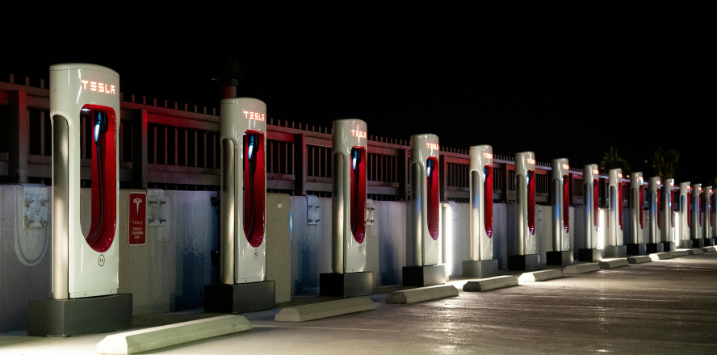
EV sales decline leads to more EV sales declines
In what is perhaps a case of tail wagging the dog, a plunge in electric vehicle (EV) sales in Europe is causing at least one government there to revise the dates by which automotive manufacturers must transition to manufacturing only EVs.
EV sales have recently plummeted in Germany. The European Automobile Manufacturers’ Association recently reported a significant 29 per cent drop in German year-on-year electric car sales for March.
And across the entire European Union, there was an 11 per cent decline compared to the same month last year.
This shift in trend has understandably sparked concern in Europe regarding the adoption of environmentally friendly transport while rendering Toyota’s (NYSE:TM) Chairman something of a prophet. Earlier this year, the chairman of Toyota, Akio Toyoda, predicted electric vehicles will only ever make up 30 per cent of global new-car sales.
Toyota argues that hybrid and plug-in hybrid powertrains will, perhaps counterintuitively, provide a shorter path to decarbonization than bans on the sale of ICE vehicles or policies mandating the manufacture and sale of EVs, because hybrid technology has a lower cost and greater range, which combined, accelerates market acceptance.
Could the bump in the growth of pure EV sales set the stage for the development of alternatives such as hybrids, hydrogen, and others?
Even in Norway, the fourth largest EV market in Europe, where EV sales comprise 90 per cent of all vehicle sales thanks to incentives and tax reductions, EV registrations have halved. Perhaps saturation has something to do with Norway’s story.
In the UK, which now leads Europe in electric vehicle sales, March saw an increase of almost four per cent and an increase of almost 10 per cent in the first quarter. Despite this growth, the UK EV market share has fallen slightly from 16.6 per cent to 15.2 per cent in the last year.
As we have already reported, Tesla’s (NASDAQ:TSLA) response to declining demand has been a reduction of 14,000 employees, equivalent to about 10 per cent of its workforce.
The downturn in sales is being attributed to well-known causes, including higher EV prices – typically 50 per cent more than a petrol equivalent, a surfeit of cheaper models, and consumer concerns about range (range anxiety) and insufficient charging infrastructure.
Meanwhile, the cost-of-living crisis, as well as higher interest rates in Australia, is also being endured in Europe and impacting EV sales.
Perhaps most importantly, Britain saw a drop in sales late last year after its government postponed the phase-out of petrol and diesel cars by five years from 2030 to 2035. Claiming the move was “pragmatic, proportionate and realistic,” UK Prime Minister Rishi Sunak’s re-election-inspired policy backflip is a response to cost-of-living pressures, the lack of infrastructure, and consumer concerns about resales values, battery recycling, and a lack of charging infrastructure, which many governments are being expected to fund.
If Britain’s move is replicated elsewhere, it will continue the slowdown in EV sales. Of course, if there is no urgency to purchase an EV and many more years will pass before the requirement to switch, resale values for older models will plummet, acting as a disincentive to buy current-model EVs and feeding further falls in demand.
Of course, there’s a chance other countries won’t follow the UK’s lead. We will continue to watch with vested interest!